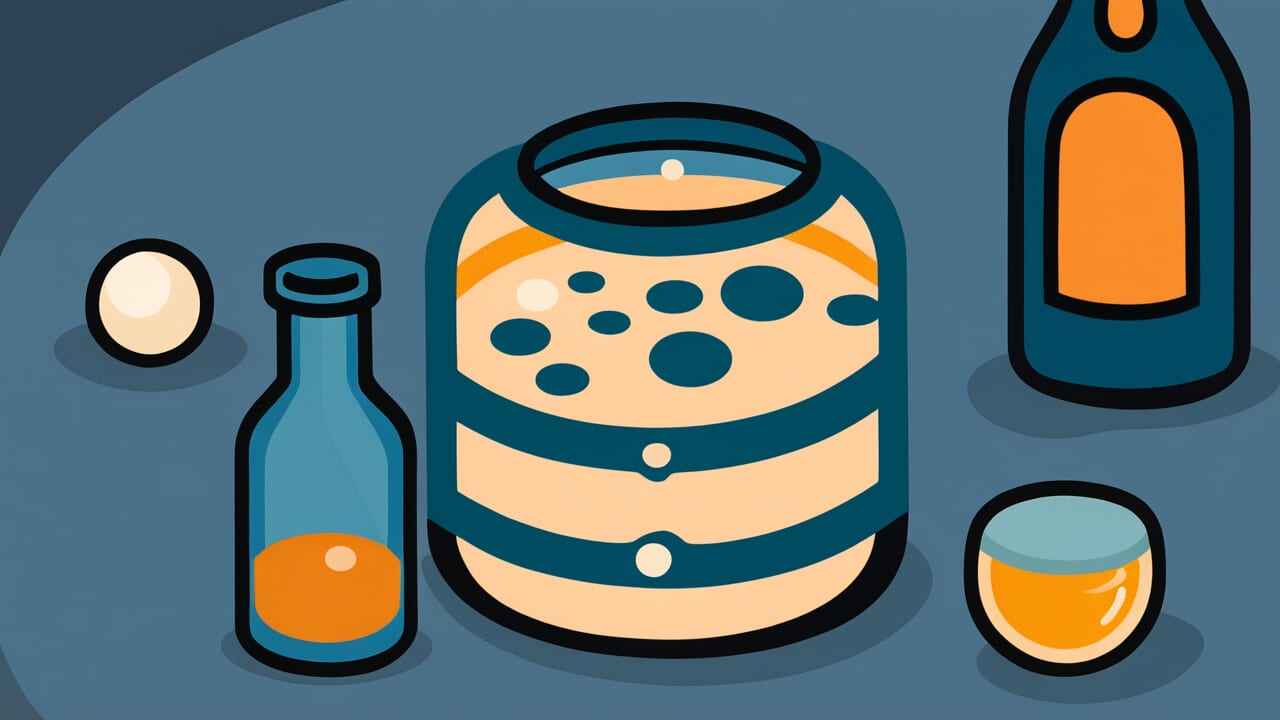How to Read “Truth exists in sake”
さけのなかにしんあり
Meaning of “Truth exists in sake”
This proverb means that when people drink alcohol, their true feelings and thoughts come out.
In daily life, people often hide their real feelings. They consider their social position and relationships with others. They suppress what they truly think and speak in polite, indirect ways instead.
However, when people drink sake and their rational control weakens, their true emotions surface. The honest feelings hidden deep in their hearts come out.
This proverb can be used as a warning that you need to be careful what you say when drinking. It can also mean that what someone says while drunk reveals their true feelings.
In business settings, drinking parties are sometimes arranged specifically to hear people’s honest opinions. The human psychology shown in this proverb is still used in modern times.
Origin and Etymology
This proverb likely comes from the ancient Roman poet Horace’s phrase “In vino veritas.”
This Latin expression means “truth in wine.” The popular theory is that this phrase came to Japan and became “Truth exists in sake.”
In the West, people have long recognized that alcohol loosens rational control. It draws out honest feelings that people usually hide. This way of thinking exists in the East as well.
In Japan, what people say while drinking has historically been valued as their true feelings.
What’s interesting is that this proverb isn’t just borrowed from the West. It’s also deeply rooted in Japanese culture.
In Japan since ancient times, sake has been essential for religious ceremonies. It was considered a sacred drink connecting gods and people.
The idea that drinking sake releases you from everyday constraints fits with Japanese spirituality. It reveals your more essential self.
After the Meiji period, Western culture flowed into Japan. This Latin saying became established in Japanese and came to be widely used.
Usage Examples
- At yesterday’s drinking party, the department head complained about the company. Truth exists in sake, so that must be his real feelings.
- He’s usually calm, but when drunk he suddenly gets emotional. Truth exists in sake—maybe he’s actually a passionate person deep down.
Universal Wisdom
“Truth exists in sake” shows a universal truth about human duality.
We all have a “public face” needed to function in society. We also have our “true self” hidden deep in our hearts. We switch between these two.
This switching doesn’t mean we’re liars. Rather, it’s wisdom for living smoothly in society.
However, always living with a public face puts great strain on the heart. Constantly suppressing honest feelings can make you lose touch with your own true emotions.
This is why humanity has valued alcohol since ancient times. Sake temporarily removes the armor of rationality. It functions as a device to release your original self.
This proverb has been passed down through the ages for a reason. Humans are fundamentally beings who sway between “true feelings and public face.”
We can’t live completely by honest feelings alone. We also can’t live completely by public face alone.
This proverb sharply captures humans living in that space between. People fear saying the wrong thing while drinking, yet they continue to drink.
Perhaps this is because of a fundamental desire to express their true selves.
When AI Hears This
When you consume alcohol, activity in the brain’s prefrontal cortex begins to decline around 0.05 percent blood alcohol concentration.
This prefrontal cortex acts as a supervisor that “selects socially appropriate behavior.” In other words, we normally have multiple thoughts and emotions at the same time.
The prefrontal cortex selects only “things that are okay to say in this situation” and lets them out.
What’s interesting is that the “true feelings” revealed by alcohol aren’t necessarily the deepest truth. From a neuroscience perspective, we simultaneously contain “the self that’s dissatisfied with the boss,” “the grateful self,” and “the indifferent self.”
Alcohol just weakens this monitoring system. Which self comes out changes depending on the situation and the other person.
At one drinking party you might complain constantly. At another you might express gratitude. This is why.
Furthermore, when prefrontal inhibition is released, responses from evolutionarily older parts of the brain emerge more easily. This includes aggression and sexual impulses.
This is closer to “primitive reactions usually managed by reason” rather than “the real you.”
What appears in sake isn’t a single truth. It’s just one aspect of our multilayered self.
What we call “the true self” is actually a situation-dependent phenomenon. It’s made up of various balances between inhibition and release.
Lessons for Today
This proverb teaches modern people the importance of facing their true feelings.
Not being able to express your honest thoughts without drinking might be unhealthy in a way. What matters is having the courage to express your real feelings at appropriate times, without relying on alcohol.
At the same time, this proverb offers clues for understanding others. Everyone lives by switching between true feelings and public face.
The key to building deep relationships is trying to understand the real feelings behind someone’s surface words.
It also makes us think about ourselves. How much do you suppress your true feelings in daily life?
Sometimes you need to stop and listen to your honest emotions. Even without alcohol, you can examine your true self through dialogue with trusted people or quiet time alone.
Value your honest feelings while learning the wisdom to express them appropriately. That’s the message this proverb conveys to those of us living in modern times.



Comments